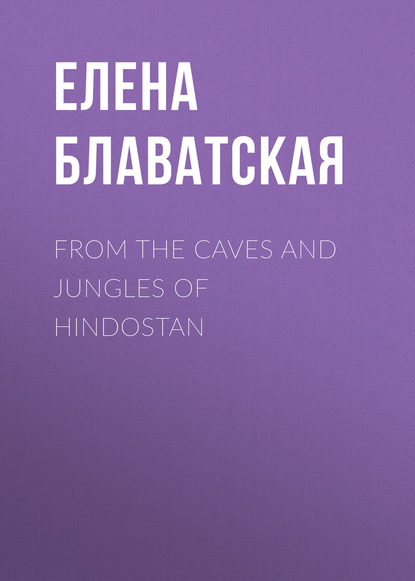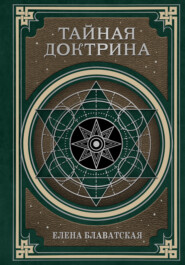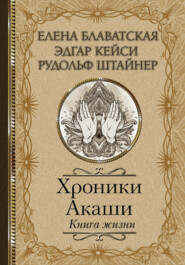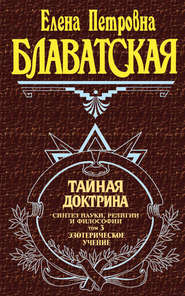По всем вопросам обращайтесь на: info@litportal.ru
(©) 2003-2024.
✖
From the Caves and Jungles of Hindostan
Настройки чтения
Размер шрифта
Высота строк
Поля
A little while before our host had finished his morning prayers the ladies of the house came into the room. They brought each a small stool and sat in a row murmuring prayers and telling the beads of their rosaries.
The part played by the rosaries in India is as important as in all Buddhist countries. Every god has his favorite flower and his favorite material for a rosary. The fakirs are simply covered with rosaries. The rosary is called mala and consists of one hundred and eight beads. Very pious Hindus are not content to tell the beads when praying; they must hide their hands during this ceremony in a bag called gomukha, which means the cow's mouth.
We left the women to their prayers and followed our host to the cow house. The cow symbolizes the "fostering earth," or Nature, and is worshipped accordingly. Sham Rao sat down by the cow and washed her feet, first with her own milk, then with water. He gave her some sugar and rice, covered her forehead with powdered sandal, and adorned her horns and four legs with chains of flowers. He burned some incense under her nostrils and brandished a burning lamp over her head. Then he walked three times round her and sat down to rest. Some Hindus walk round the cow one hundred and eight times, rosary in hand. But our Sham Rao had a slight tendency to freethinking, as we knew, and besides, he was too much of an admirer of Haeckel. Having rested himself, he filled a cup with water, put in it the cow's tail for a moment, and then drank it!
After this he performed the rite of worshipping the sun and the sacred plant tulsi. Unable to bring the god Surya from his heavenly altar and wash him in the sacred font, Sham Rao contented himself by filling his own mouth with water, standing on one leg, and spirting this water towards the sun. Needless to say it never reached the orb of day, but, very unexpectedly, sprinkled us instead.–
It is still a mystery to us why the plant tulsi, Royal Basilicum, is worshipped. However, towards the end of September we yearly witnessed the strange ceremony of the wedding of this plant with the god Vishnu, notwithstanding that tulsi bears the title of Krishna's bride, probably because of the latter being an incarnation of Vishnu. On these occasions pots of this plant are painted and adorned with tinsel. A magical circle is traced in the garden and the plant is put in the middle of it. A Brahman brings an idol of Vishnu and begins the marriage ceremony, standing before the plant. A married couple hold a shawl between the plant and the god, as if screening them from each other, the Brahman utters prayers, and young women, and especially unmarried girls, who are the most ardent worshippers of tulsi, throw rice and saffron over the idol and the plant. When the ceremony is concluded, the Brahman is presented with the shawl, the idol is put in the shade of his wife, the Hindus clap their hands, rend everyone's ears with the noise of tom-toms, let off fireworks, offer each other pieces of sugar-cane, and rejoice in every conceivable way till the dawn of the next day.
A Witch's Den
Our kind host Sham Rao was very gay during the remaining hours of our visit. He did his best to entertain us, and would not hear of our leaving the neighborhood without having seen its greatest celebrity, its most interesting sight. A jadu wala—sorceress—well known in the district, was just at this time under the influence of seven sister-goddesses, who took possession of her by turns, and spoke their oracles through her lips. Sham Rao said we must not fail to see her, be it only in the interests of science.
The evening closes in, and we once more get ready for an excursion. It is only five miles to the cavern of the Pythia of Hindostan; the road runs through a jungle, but it is level and smooth. Besides, the jungle and its ferocious inhabitants have ceased to frighten us. The timid elephants we had in the "dead city" are sent home, and we are to mount new behemoths belonging to a neighboring Raja. The pair, that stand before the verandah like two dark hillocks, are steady and trust worthy. Many a time these two have hunted the royal tiger, and no wild shrieking or thunderous roaring can frighten them. And so, let us start!
The ruddy flames of the torches dazzle our eyes and increase the forest gloom. Our surroundings seem so dark, so mysterious. There is something indescribably fascinating, almost solemn, in these night-journeys in the out-of-the-way corners of India. Everything is silent and deserted around you, everything is dozing on the earth and overhead. Only the heavy, regular tread of the elephants breaks the stillness of the night, like the sound of falling hammers in the underground smithy of Vulcan. From time to time uncanny voices and murmurs are heard in the black forest.
"The wind sings its strange song amongst the ruins," says one of us, "what a wonderful acoustic phenomenon!" "Bhuta, bhuta!" whisper the awestruck torch-bearers. They brandish their torches and swiftly spin on one leg, and snap their fingers to chase away the aggressive spirits.
The plaintive murmur is lost in the distance. The forest is once more filled with the cadences of its invisible nocturnal life—the metallic whirr of the crickets, the feeble, monotonous croak of the tree-frog, the rustle of the leaves. From time to time all this suddenly stops short and then begins again, gradually increasing and increasing.
Heavens! What teeming life, what stores of vital energy are hidden under the smallest leaf, the most imperceptible blades of grass, in this tropical forest! Myriads of stars shine in the dark blue of the sky, and myriads of fireflies twinkle at us from every bush, moving sparks, like a pale reflection of the far-away stars.
We left the thick forest behind us, and reached a deep glen, on three sides bordered with the thick forest, where even by day the shadows are as dark as by night. We were about two thousand feet above the foot of the Vindhya ridge, judging by the ruined wall of Mandu, straight above our heads. Suddenly a very chilly wind rose that nearly blew our torches out. Caught in the labyrinth of bushes and rocks, the wind angrily shook the branches of the blossoming syringas, then, shaking itself free, it turned back along the glen and flew down the valley, howling, whistling and shrieking, as if all the fiends of the forest together were joining in a funeral song.
"Here we are," said Sham Rao, dismounting. "Here is the village; the elephants cannot go any further."
"The village? Surely you are mistaken. I don't see anything but trees."
"It is too dark to see the village. Besides, the huts are so small, and so hidden by the bushes, that even by daytime you could hardly find them. And there is no light in the houses, for fear of the spirits."
"And where is your witch? Do you mean we are to watch her performance in complete darkness?"
Sham Rao cast a furtive, timid look round him; and his voice, when he answered our questions, was somewhat tremulous.
"I implore you not to call her a witch! She may hear you.... It is not far off, it is not more than half a mile. Do not allow this short distance to shake your decision. No elephant, and even no horse, could make its way there. We must walk.... But we shall find plenty of light there.... "
This was unexpected, and far from agreeable. To walk in this gloomy Indian night; to scramble through thickets of cactuses; to venture in a dark forest, full of wild animals—this was too much for Miss X–. She declared that she would go no further. She would wait for us in the howdah, on the elephant's back, and perhaps would go to sleep.
Narayan was against this parti de plaisir from the very beginning, and now, without explaining his reasons, he said she was the only sensible one among us.
"You won't lose anything," he remarked, "by staying where you are. And I only wish everyone would follow your example."
"What ground have you for saying so, I wonder?" remonstrated Sham Rao, and a slight note of disappointment rang in his voice, when he saw that the excursion, proposed and organized by himself, threatened to come to nothing. "What harm could be done by it? I won't insist any more that the 'incarnation of gods' is a rare sight, and that the Europeans hardly ever have an opportunity of witnessing it; but, besides, the Kangalim in question is no ordinary woman. She leads a holy life; she is a prophetess, and her blessing could not prove harmful to any one. I insisted on this excursion out of pure patriotism."
"Sahib, if your patriotism consists in displaying before foreigners the worst of our plagues, then why did you not order all the lepers of your district to assemble and parade before the eyes of our guests? You are a patel, you have the power to do it."
How bitterly Narayan's voice sounded to our unaccustomed ears. Usually he was so even-tempered, so indifferent to everything belonging to the exterior world.
Fearing a quarrel between the Hindus, the colonel remarked, in a conciliatory tone, that it was too late for us to reconsider our expedition. Besides, without being a believer in the "incarnation of gods," he was personally firmly convinced that demoniacs existed even in the West. He was eager to study every psychological phenomenon, wherever he met with it, and whatever shape it might assume.
It would have been a striking sight for our European and American friends if they had beheld our procession on that dark night. Our way lay along a narrow winding path up the mountain. Not more than two people could walk together—and we were thirty, including the torch-bearers. Surely some reminiscence of night sallies against the confederate Southerners had revived in the colonel's breast, judging by the readiness with which he took upon himself the leadership of our small expedition. He ordered all the rifles and revolvers to be loaded, despatched three torch-bearers to march ahead of us, and arranged us in pairs. Under such a skilled chieftain we had nothing to fear from tigers; and so our procession started, and slowly crawled up the winding path.
It cannot be said that the inquisitive travelers, who appeared later on, in the den of the prophetess of Mandu, shone through the freshness and elegance of their costumes. My gown, as well as the traveling suits of the colonel and of Mr. Y– were nearly torn to pieces. The cactuses gathered from us whatever tribute they could, and the Babu's disheveled hair swarmed with a whole colony of grasshoppers and fireflies, which, probably, were attracted thither by the smell of cocoa-nut oil. The stout Sham Rao panted like a steam engine. Narayan alone was like his usual self; that is to say, like a bronze Hercules, armed with a club. At the last abrupt turn of the path, after having surmounted the difficulty of climbing over huge, scattered stones, we suddenly found ourselves on a perfectly smooth place; our eyes, in spite of our many torches, were dazzled with light; and our ears were struck by a medley of unusual sounds.
A new glen opened before us, the entrance of which, from the valley, was well masked by thick trees. We understood how easily we might have wandered round it, without ever suspecting its existence. At the bottom of the glen we discovered the abode of the celebrated Kangalim.
The den, as it turned out, was situated in the ruin of an old Hindu temple in tolerably good preservation. In all probability it was built long before the "dead city," because during the epoch of the latter, the heathen were not allowed to have their own places of worship; and the temple stood quite close to the wall of the town, in fact, right under it. The cupolas of the two smaller lateral pagodas had fallen long ago, and huge bushes grew out of their altars. This evening, their branches were hidden under a mass of bright colored rags, bits of ribbon, little pots, and various other talismans; because, even in them, popular superstition sees something sacred.
"And are not these poor people right? Did not these bushes grow on sacred ground? Is not their sap impregnated with the incense of offerings, and the exhalations of holy anchorites, who once lived and breathed here?"
The learned, but superstitious Sham Rao would only answer our questions by new questions.
But the central temple, built of red granite, stood unharmed by time, and, as we learned afterwards, a deep tunnel opened just behind its closely-shut door. What was beyond it no one knew. Sham Rao assured us that no man of the last three generations had ever stepped over the threshold of this thick iron door; no one had seen the subterranean passage for many years. Kangalim lived there in perfect isolation, and, according to the oldest people in the neighborhood, she had always lived there. Some people said she was three hundred years old; others alleged that a certain old man on his death-bed had revealed to his son that this old woman was no one else than his own uncle. This fabulous uncle had settled in the cave in the times when the "dead city" still counted several hundreds of inhabitants. The hermit, busy paving his road to Moksha, had no intercourse with the rest of the world, and nobody knew how he lived and what he ate. But a good while ago, in the days when the Bellati (foreigners) had not yet taken possession of this mountain, the old hermit suddenly was transformed into a hermitess. She continues his pursuits and speaks with his voice, and often in his name; but she receives worshippers, which was not the practice of her predecessor.
We had come too early, and the Pythia did not at first appear. But the square before the temple was full of people, and a wild, though picturesque, scene it was. An enormous bonfire blazed in the centre, and round it crowded the naked savages like so many black gnomes, adding whole branches of trees sacred to the seven sister-goddesses. Slowly and evenly they all jumped from one leg to another to a tune of a single monotonous musical phrase, which they repeated in chorus, accompanied by several local drums and tambourines. The hushed trill of the latter mingled with the forest echoes and the hysterical moans of two little girls, who lay under a heap of leaves by the fire. The poor children were brought here by their mothers, in the hope that the goddesses would take pity upon them and banish the two evil spirits under whose obsession they were. Both mothers were quite young, and sat on their heels blankly and sadly staring at the flames. No one paid us the slightest attention when we appeared, and afterwards during all our stay these people acted as if we were invisible. Had we worn a cap of darkness they could not have behaved more strangely.
"They feel the approach of the gods! The atmosphere is full of their sacred emanations!" mysteriously explained Sham Rao, contemplating with reverence the natives, whom his beloved Haeckel might have easily mistaken for his "missing link," the brood of his " Bathybius Haeckelii."
"They are simply under the influence of toddy and opium!" retorted the irreverent Babu.
The lookers-on moved as in a dream, as if they all were only half-awakened somnambulists; but the actors were simply victims of St. Vitus's dance. One of them, a tall old man, a mere skeleton with a long white beard, left the ring and begun whirling vertiginously, with his arms spread like wings, and loudly grinding his long, wolf-like teeth. He was painful and disgusting to look at. He soon fell down, and was carelessly, almost mechanically, pushed aside by the feet of the others still engaged in their demoniac performance.
All this was frightful enough, but many more horrors were in store for us.
Waiting for the appearance of the prima donna of this forest opera company, we sat down on the trunk of a fallen tree, ready to ask innumerable questions of our condescending host. But I was hardly seated, when a feeling of indescribable astonishment and horror made me shrink back.
I beheld the skull of a monstrous animal, the like of which I could not find in my zoological reminiscences. This head was much larger than the head of an elephant skeleton. And still it could not be anything but an elephant, judging by the skillfully restored trunk, which wound down to my feet like a gigantic black leech. But an elephant has no horns, whereas this one had four of them! The front pair stuck from the flat forehead slightly bending forward and then spreading out; and the others had a wide base, like the root of a deer's horn, that gradually decreased almost up to the middle, and bore long branches enough to decorate a dozen ordinary elks. Pieces of the transparent amber-yellow rhinoceros skin were strained over the empty eye-holes of the skull, and small lamps burning behind them only added to the horror, the devilish appearance of this head.
"What can this be?" was our unanimous question. None of us had ever met anything like it, and even the colonel looked aghast.
"It is a Sivatherium," said Narayan. "Is it possible you never came across these fossils in European museums? Their remains are common enough in the Himalayas, though, of course, in fragments. They were called after Shiva."
"If the collector of this district ever hears that this antediluvian relic adorns the den of your—ahem!—witch," remarked the Babu, "it won't adorn it many days longer."
All round the skull, and on the floor of the portico there were heaps of white flowers, which, though not quite antediluvian, were totally unknown to us. They were as large as a big rose; and their white petals were covered with a red powder, the inevitable concomitant of every Indian religious ceremony. Further on, there were groups of cocoa-nuts, and large brass dishes filled with rice; and each adorned with a red or green taper. In the centre of the portico there stood a queer-shaped censer, surrounded with chandeliers. A little boy, dressed from head to foot in white, threw into it handfuls of aromatic powders.
"These people, who assemble here to worship Kangalim," said Sham Rao, "do not actually belong either to her sect or to any other. They are devil-worshippers. They do not believe in Hindu gods, but live in small communities; they belong to one of the many Indian races, which usually are called the hill-tribes. Unlike the Shanars of Southern Travancore, they do not use the blood of sacrificial animals; they do not build separate temples to their bhutas. But they are possessed by the strange fancy that the goddess Kali, the wife of Shiva, from time immemorial has had a grudge against them, and sends her favorite evil spirits to torture them. Save this little difference, they have the same beliefs as the Shanars. God does not exist for them; and even Shiva is considered by them as an ordinary spirit. Their chief worship is offered to the souls of the dead. These souls, however righteous and kind they may be in their lifetime, become after death as wicked as can be; they are happy only when they are torturing living men and cattle. As the opportunities of doing so are the only reward for the virtues they possessed when incarnated, a very wicked man is punished by becoming after his death a very soft-hearted ghost; he loathes his loss of daring, and is altogether miserable. The results of this strange logic are not bad, nevertheless. These savages and devil-worshippers are the kindest and the most truth-loving of all the hill-tribes. They do whatever they can to be worthy of their ultimate reward; because, don't you see, they all long to become the wickedest of devils!...."
And put in good humor by his own wittiness, Sham Rao laughed till his hilarity became offensive, considering the sacredness of the place.
"A year ago some business matters sent me to Tinevelli," continued he. "Staying with a friend of mine, who is a Shanar, I was allowed to be present at one of the ceremonies in the honor of devils. No European has as yet witnessed this worship—whatever the missionaries may say; but there are many converts amongst the Shanars, who willingly describe them to the padres. My friend is a wealthy man, which is probably the reason why the devils are especially vicious to him. They poison his cattle, spoil his crops and his coffee plants, and persecute his numerous relations, sending them sunstrokes, madness and epilepsy, over which illnesses they especially preside. These wicked demons have settled in every corner of his spacious landed property—in the woods, the ruins, and even in his stables. To avert all this, my friend covered his land with stucco pyramids, and prayed humbly, asking the demons to draw their portraits on each of them, so that he may recognize them and worship each of them separately, as the rightful owner of this, or that, particular pyramid. And what do you think?.... Next morning all the pyramids were found covered with drawings. Each of them bore an incredibly good likeness of the dead of the neighborhood. My friend had known personally almost all of them. He found also a portrait of his own late father amongst the lot....."
"Well? And was he satisfied?"
"Oh, he was very glad, very satisfied. It enabled him to choose the right thing to gratify the personal tastes of each demon, don't you see? He was not vexed at finding his father's portrait. His father was somewhat irascible; once he nearly broke both his son's legs, administering to him fatherly punishment with an iron bar, so that he could not possibly be very dangerous after his death. But another portrait, found on the best and the prettiest of the pyramids, amazed my friend a good deal, and put him in a blue funk. The whole district recognized an English officer, a certain Captain Pole, who in his lifetime was as kind a gentleman as ever lived."
"Indeed? But do you mean to say that this strange people worshipped Captain Pole also?"

















